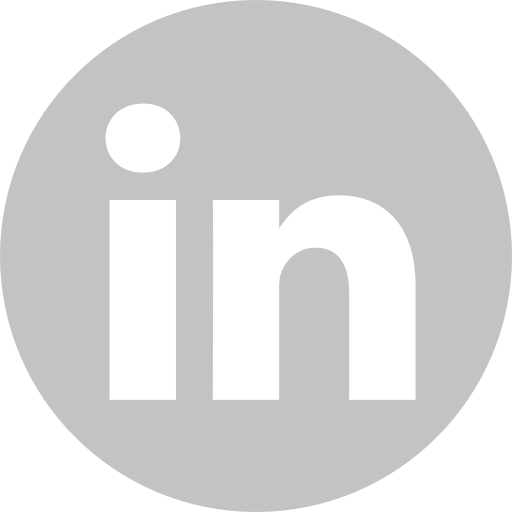The fast-paced nature of agency work demands flexibility, creativity, and seamless collaboration. Unfortunately, generic ERP systems are about as agile as a three-legged tortoise. They often require extensive modifications, leading to skyrocketing costs and implementation headaches. As the industry evolves, these generic tools become liabilities, hindering growth and innovation rather than fostering it. It's high time for agencies to reconsider their approach and seek out tailored solutions that truly reflect their unique workflows and aspirations. By exploring the shortcomings of generic platforms, it becomes clear why specialized agency software is essential.
The Pitfalls of Generic ERP Systems in Agency Environments
Generic ERP systems are designed with broad applicability in mind, which often means sacrificing the specificity that agencies require. Their inherent limitations can cause inefficiencies, increase costs, and hinder an agency's ability to deliver exceptional work. Below, we delve deeper into the key issues that make these systems unsuitable for agency environments. The focus here is not only on the drawbacks but also on the opportunities agencies miss out on by not using software tailored to their needs.
1) Lack of Customization for Agency Workflows
One of the most significant drawbacks of generic ERP systems is their inability to adapt to the unique workflows of agencies. Unlike manufacturing or retail environments, agencies often have complex, non-linear processes that require a tailored approach.
Agencies handle diverse projects ranging from creative campaigns to media planning, each with distinct requirements and timelines. Generic ERP systems fail to accommodate these nuances, forcing agencies to either sacrifice efficiency or heavily modify the software. This lack of alignment between software capabilities and operational needs can lead to mismanagement, reduced productivity, and dissatisfied teams.
Dynamic client demands further compound the problem. Agencies operate in an ever-changing landscape where priorities shift and new opportunities arise. The rigidity of generic ERP systems makes it difficult to pivot quickly, leaving teams scrambling to adapt within the confines of an inflexible platform. Instead of empowering teams, these systems often become an obstacle to progress. Purpose-built agency software, however, aligns seamlessly with these demands, ensuring workflows remain smooth and responsive.
2) Limited Integration with Media Buying Systems
Integration capabilities are critical in today’s interconnected business environment. For agencies, the ability to seamlessly connect ERP systems with media buying platforms is not a luxury but a necessity. Unfortunately, generic ERP systems often fall short in this crucial area.
When data remains siloed due to a lack of integration, agencies struggle to gain a comprehensive view of their operations. Real-time decision-making becomes nearly impossible, and teams are left relying on outdated or incomplete information. The manual data entry required to bridge the gap only exacerbates the issue, increasing the likelihood of errors and wasting valuable resources.
By contrast, tailored ERP systems designed with integration capabilities provide a cohesive operational environment. This ensures that all relevant data—from campaign performance metrics to financial records—is easily accessible and actionable, empowering agencies to deliver better results. A lack of such seamless connectivity can hinder campaigns and limit an agency’s overall performance.
3) High Costs of Retrofitting Generic Features
The allure of generic ERP systems often lies in their perceived affordability. However, the reality is that these systems frequently come with hidden costs. Agencies must invest heavily in customizations to align generic software with their specific needs, turning an initially low-cost solution into a financial burden.
Customizations often require hiring specialized consultants, dedicating internal resources, and enduring prolonged implementation timelines. Even after these initial expenses, the costs don’t stop. Ongoing maintenance and updates necessitate additional spending, creating a cycle of continuous investment. For many agencies, the cumulative cost of retrofitting a generic ERP system can far exceed the price of a purpose-built solution.
Opting for specialized agency software eliminates these hidden expenses. Built to address industry-specific challenges, these solutions save time and resources while ensuring efficiency and scalability. Agencies can achieve their goals without draining their budgets on endless modifications.
4) Inefficient WIP and Job Cost Tracking
Work-in-progress (WIP) and job cost tracking are foundational to effective agency management. Yet, these critical features are often poorly supported by generic ERP systems, leaving agencies struggling to maintain visibility into their financial health.
Without real-time insights into project statuses and costs, agencies face significant challenges in resource allocation. Decisions are delayed, budgets are exceeded, and profitability takes a hit. Moreover, the inflexibility of generic reporting tools prevents agencies from generating the nuanced insights they need to optimize performance. As a result, valuable opportunities for improvement are overlooked, and inefficiencies persist unchecked.
With agency software designed for real-time WIP tracking and detailed cost analysis, organizations gain the transparency needed to make informed decisions. Such tools not only enhance operational clarity but also improve profitability by reducing waste and optimizing resource allocation.
6) Slow Adoption Due to Complex Interfaces
The usability of an ERP system plays a significant role in its overall effectiveness. Employees must not only learn how to use the system but also feel confident in leveraging its features to improve workflows. Unfortunately, generic ERP systems often feature clunky interfaces that deter user engagement.
Employees already balancing demanding workloads may find it difficult to invest the time needed to master a cumbersome system. This steep learning curve not only hampers productivity but also fosters resistance to change. In some cases, teams may revert to manual processes or legacy systems, undermining the very purpose of adopting an ERP solution.
A user-friendly interface is essential for fostering engagement and driving efficiency. When employees can easily navigate a system and access the tools they need, they are more likely to embrace the technology and fully leverage its capabilities. Agency software excels in this regard by prioritizing intuitive design and streamlined workflows, ensuring teams can adapt quickly and maximize productivity.
Embrace Tailored Agency Software Solutions for Success
The challenges posed by generic ERP systems highlight the need for agency-specific solutions. By adopting a tailored ERP system, agencies can sidestep the pitfalls of generic tools and unlock their full potential. Tailored solutions are built with agency workflows in mind, ensuring seamless integration, real-time insights, and a user-friendly experience that fosters engagement.
Investing in an ERP system designed specifically for agency workflows is a strategic decision. These solutions align with the unique demands of agency life, offering seamless integration with media buying systems, efficient job cost tracking, and an intuitive user experience. By empowering teams with the right tools, agencies can unlock new levels of productivity, creativity, and profitability.
At Accountability, we understand the challenges agencies face and have developed a platform that addresses them head-on. Our solution is purpose-built to meet the specific needs of agencies, offering robust financial controls, real-time insights, and seamless integrations. With Accountability, agencies can move beyond the limitations of generic ERP systems and embrace a future of streamlined operations and exceptional results. Connect with us for a free demo to learn more about our solution.


